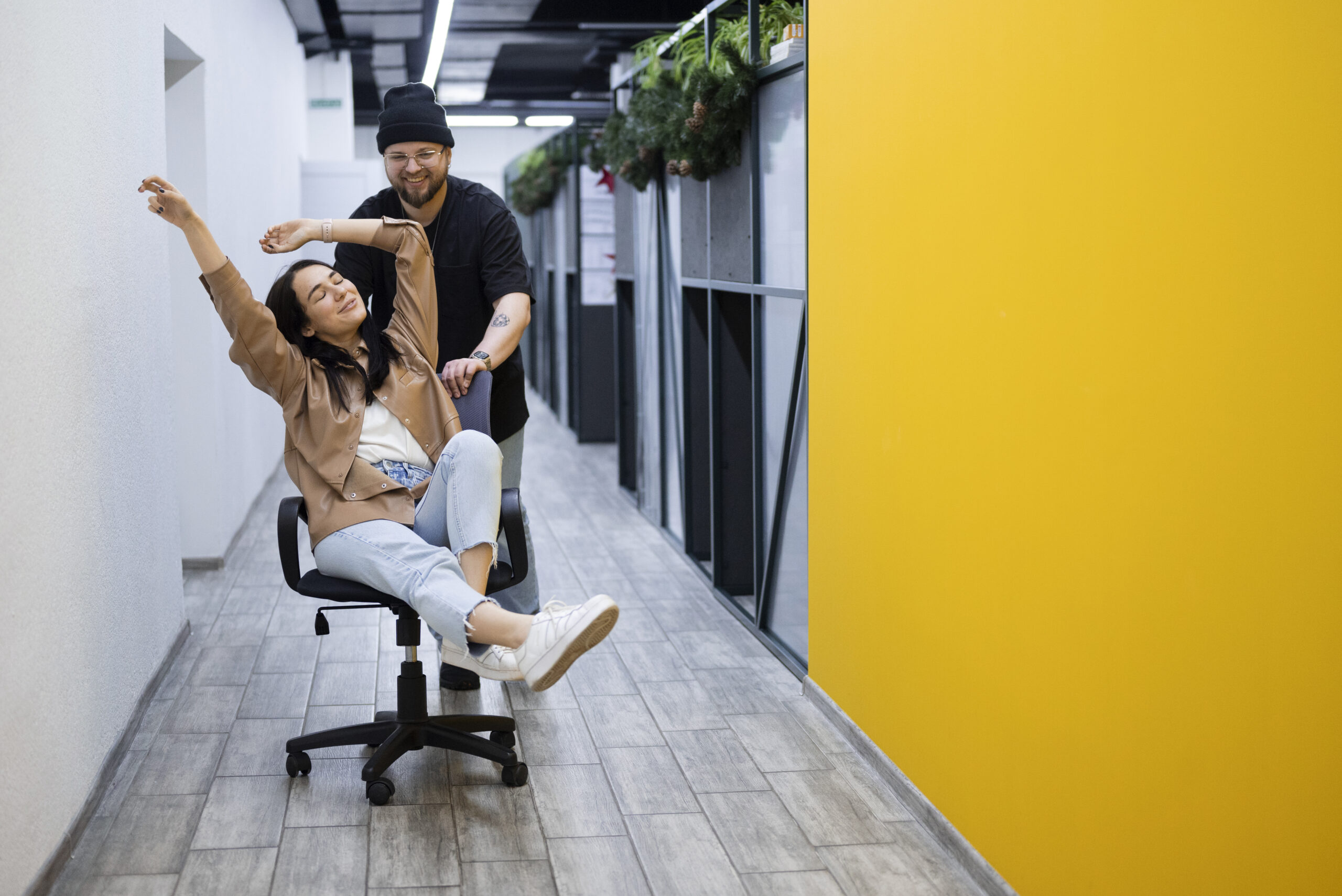Designing a functional and comfortable remote office space
Importance of a functional and comfortable office space
When working remotely, it’s crucial to design an office space that is both functional and comfortable. The workspace you create can have a significant impact on your productivity, focus, creativity, and overall work satisfaction. Investing time into optimizing your home office pays off by allowing you to work more efficiently and comfortably each day.
A well-designed office provides you with the ideal environment to handle your daily tasks. It removes distractions and clutter that can hamper your concentration. At the same time, a comfortable workspace prevents physical strains from long work hours. Designing your remote office strategically creates an environment where you can thrive and do your best work.
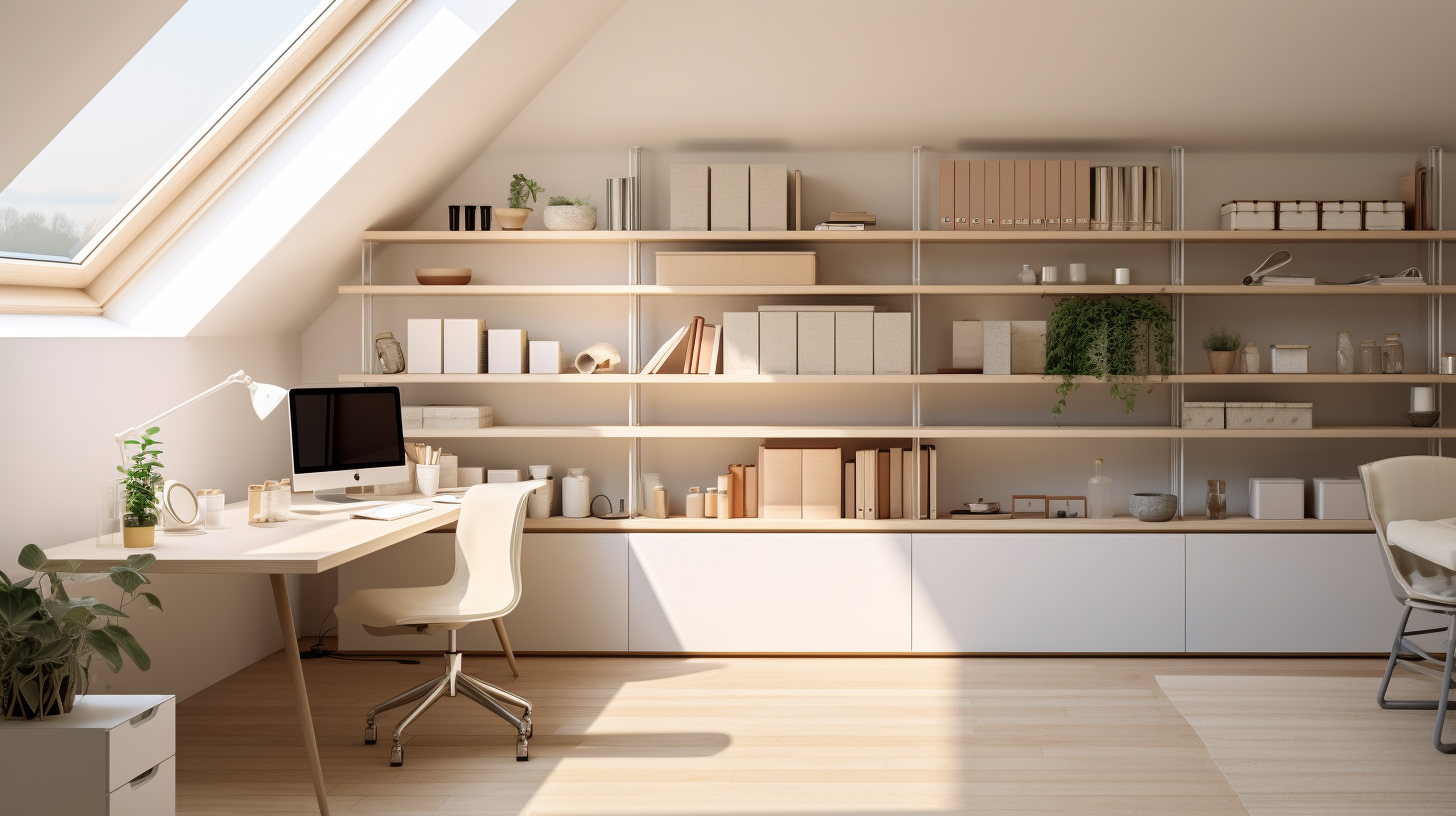
The effect of workspace on employee productivity
Numerous studies have shown that an employee’s workspace has a direct correlation with their productivity. Workers who have access to natural lighting, ergonomic furniture, sufficient storage space, and a clutter-free environment tend to be more productive than those without these features.
Optimizing your home office setup can increase your daily output and motivation levels. Eliminating distractions and physical discomforts allows you to focus fully on work. A well-designed office space also provides visual inspiration and positively impacts your mood, priming you to accomplish more each day.
#1 Keep your desk clear
Negative effects of a cluttered desk
A cluttered desk can significantly reduce your productivity and focus while working. Having stacks of paper, notes, files, stationery, food wrappers, and other items on your desk leads to visual distraction. It also makes it harder to find important documents when you need them.
Research shows that physical clutter competes for your attention and reduces your ability to focus on the task at hand. A messy desk causes forgetfulness, increases stress, and lowers motivation levels. Working in a cluttered space makes you more prone to make mistakes and delays completing tasks.
Benefits of a clean and organized desk
Keeping your desk clear of clutter improves concentration and efficiency. A clean workspace allows you to focus without visual distractions getting in the way. Having an organized desk also makes your work area look neater and more professional for video calls.
Decluttering your desk improves your ability to think clearly and make decisions. It becomes easier to prioritize important tasks without disorder surrounding you. A clean desk area also promotes a sense of control and can have a positive effect on your overall mood.
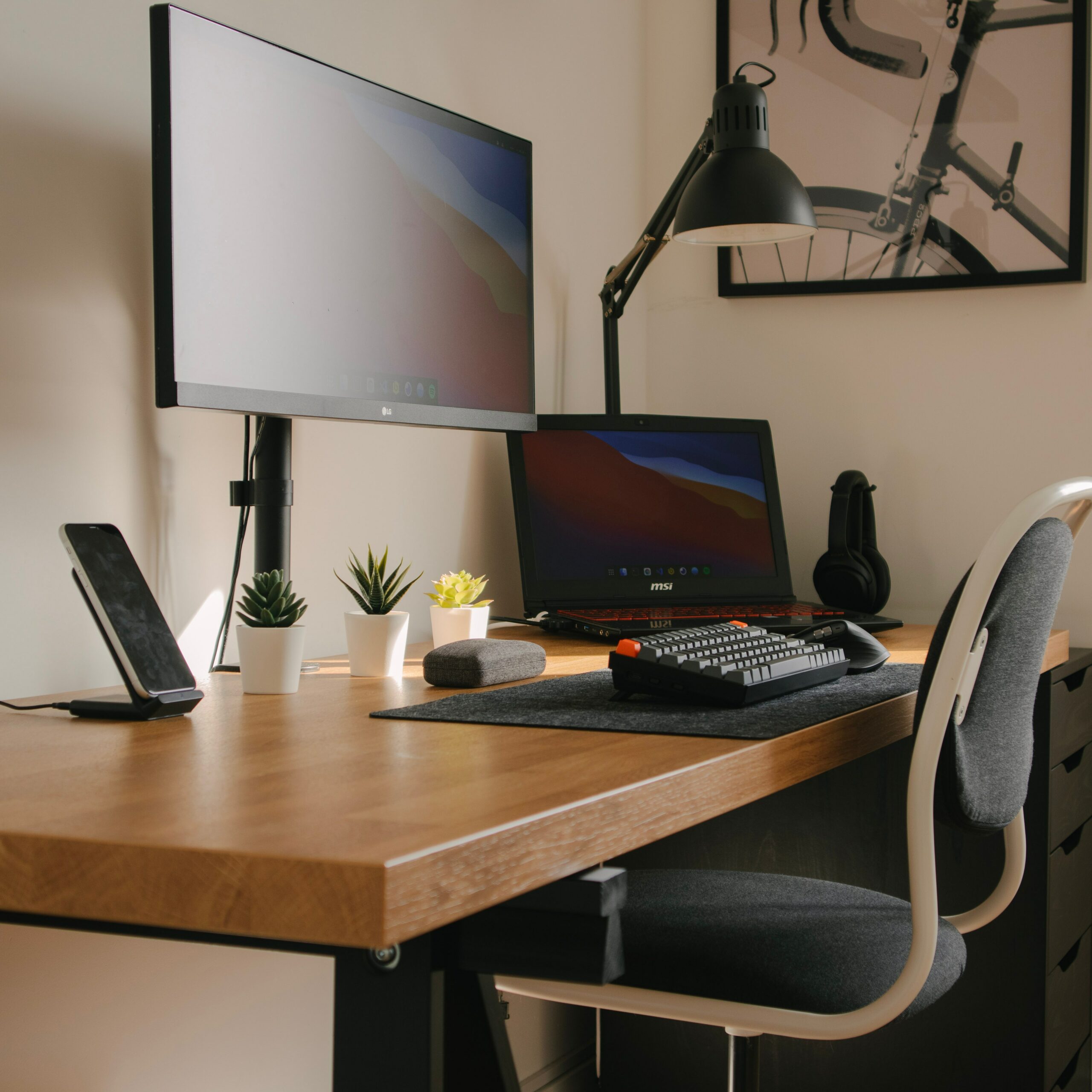
#2 Create a space to relax
Importance of relaxation spaces in the office
Having a dedicated relaxation space in your remote office is vital for your mental health. It gives you an area to take short breaks when you need a change of scene from your desk. This helps lower stress levels and prevents burnout from working for long periods.
A relaxation space allows you to reset your mind and body, so you return to your tasks feeling refreshed. It’s a place where you can unwind from work demands and recharge your focus and creativity. Taking regular breaks in your relaxation area boosts motivation and keeps your energy up.
Ideas for creating a relaxation space
Your relaxation space can include a comfortable chair or sofa, footstool, throw blankets, and any personal items you find calming. You can add plants, artwork, soft lighting, books, or a small water feature to create a soothing ambiance.
This area works best if separated from your main workspace. You may designate a corner of the room with a dividing screen or place it in another room like a living area. Make sure it’s easily accessible for quick breaks as needed throughout your workday.
#3 Install proper lighting
Impact of light on physical and mental well-being
The lighting in your office space impacts your physical and mental well-being. Poor lighting can lead to eye strain, headaches, and fatigue. It can also negatively affect your mood and ability to concentrate.
Proper lighting keeps your eyes comfortable and prevents headaches during work. It enhances your focus and ability to visualize details. Good lighting also creates a pleasant ambiance that uplifts your mood and energy levels.
Options for office lighting
Ideally, your office should have a combination of natural and artificial lighting. Position your desk near a window to let in ample natural light. Supplement this with adjustable overhead lighting and task lighting over your work area.
Choose bulbs with a brightness and tone suitable for office work. Install dimmers so you can adjust the lights as needed. Add local accent lighting to highlight decorative items or reading nooks in your office.
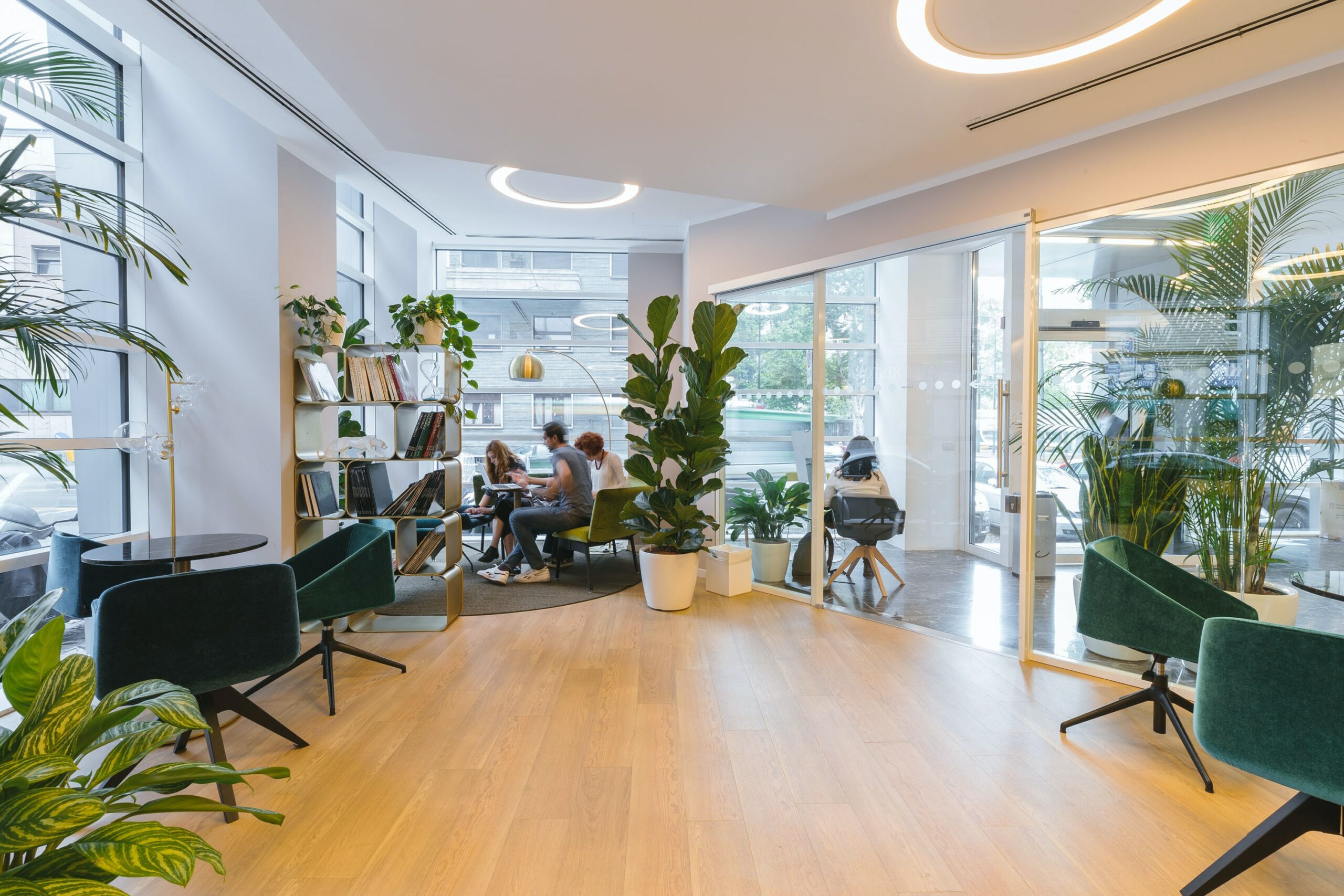
#4 Invest in organizational tools
Role of organizational tools in functionality
Investing in organizational tools is a great way to maximize the functionality of your office space. Storage solutions, filing systems, and office supplies help keep your workspace tidy and efficient.
The right organizational tools allow you to neatly store away work materials, paperwork, supplies, and electronics when not in use. This minimizes desk clutter and creates space to work productively. Easy access to supplies also improves your efficiency throughout the workday.
Suggestions for useful organizational tools
Some helpful organizational tools include file cabinets, shelves, and desk organizers to store paperwork and supplies. Wall-mounted racks or desktop stands keep reference material visible but out of the way. Charging stations corral electronics in one spot.
Invest in storage bins, trays, and drawer organizers to neatly arrange desk items. Label them clearly so you can find what you need quickly. Whiteboards, bulletin boards, and calendars also help stay organized and prioritize tasks.
#5 Add a splash of color
Psychological effects of color
Surrounding yourself with color in your home office can give your mood and motivation a boost. Different colors have unique psychological effects that can enhance your productivity.
Cool tones like blue and green have a calming effect that helps concentration. Warm shades like yellow and orange spark creativity. Bold colors like red provide visual stimulation to energize you. Choose colors that counterbalance your work tasks.
Tips for adding color to your office space
Add pops of color through wall art, decorative objects, cushions, and stationery items. Paint one accent wall in an invigorating shade. Display fresh flowers or potted plants. Use colored filing systems to organize paperwork.
Pick colorful desk accessories like trays, notepads, and containers. Install an area rug with bold patterns and colors. Use cozy throws and pillows to add visual interest to relaxation areas.

#6 Use comfortable office furniture
Importance of ergonomics in office furniture
Spending long hours in your home office can take a toll on your body without ergonomic furniture. Desks and chairs that don’t fit your body can lead to strains, aches, and pains over time.
Choosing furniture designed for ergonomics protects your physical health by promoting proper posture and movement. Adjustable pieces allow you to customize your workstation to best support your body while working.
Recommendations for comfortable office furniture
Invest in an adjustable office chair with lumbar support and seat height adjustment. Use a height-adjustable standing desk or install a desk riser for working upright. Place your monitor at eye level to prevent neck strain.
Use a keyboard tray and wrist rest to protect your wrists during typing. Opt for an ergonomic keyboard and mouse designed to promote neutral hand positions. Choose an office chair mat for hard flooring to make your chair roll smoothly.
#7 Keep essential items within reach
Improving efficiency with accessible essentials
Placing essential everyday items within easy reach improves your efficiency throughout the workday. This prevents wasting time searching for things you use frequently. Positioning key items strategically also reduces disruption to your focus.
Keep your most-used supplies, tools, files, and electronics close at hand. This allows you to seamlessly grab what you need and continue working with minimal interruption to your flow.
Strategies for arranging essential items
Use desk organizers, trays, and pencil cups to store small essentials like pens, highlighters, sticky notes, and scissors. Hang a wall-mounted rack or shelf above your desk to access reference material. Place a small file sorter on your desk to keep key files nearby.
Invest in a docking station or charging stand to keep your laptop, phone, and other devices organized and powered up on your desktop. Store daily coffee mugs or water bottles within reach to stay hydrated.

Final thoughts on the importance of a comfortable workspace
Optimizing your remote office is time well invested because of the positive impact it has on your performance and satisfaction at work. A workspace designed for both functionality and comfort removes obstacles that can hamper your productivity.
The ideal office environment empowers you to carry out uninterrupted deep work and maximize your output. It also takes care of your physical well-being by preventing strains from long work hours. Thoughtfully designing your home office creates a pleasant and inspiring space you look forward to using each day.
While establishing a productive workspace takes effort initially, the long-term benefits are immense. The tips covered in this article will help you transform your office into a highly functional and comfortable environment that brings out your best.
Other posts
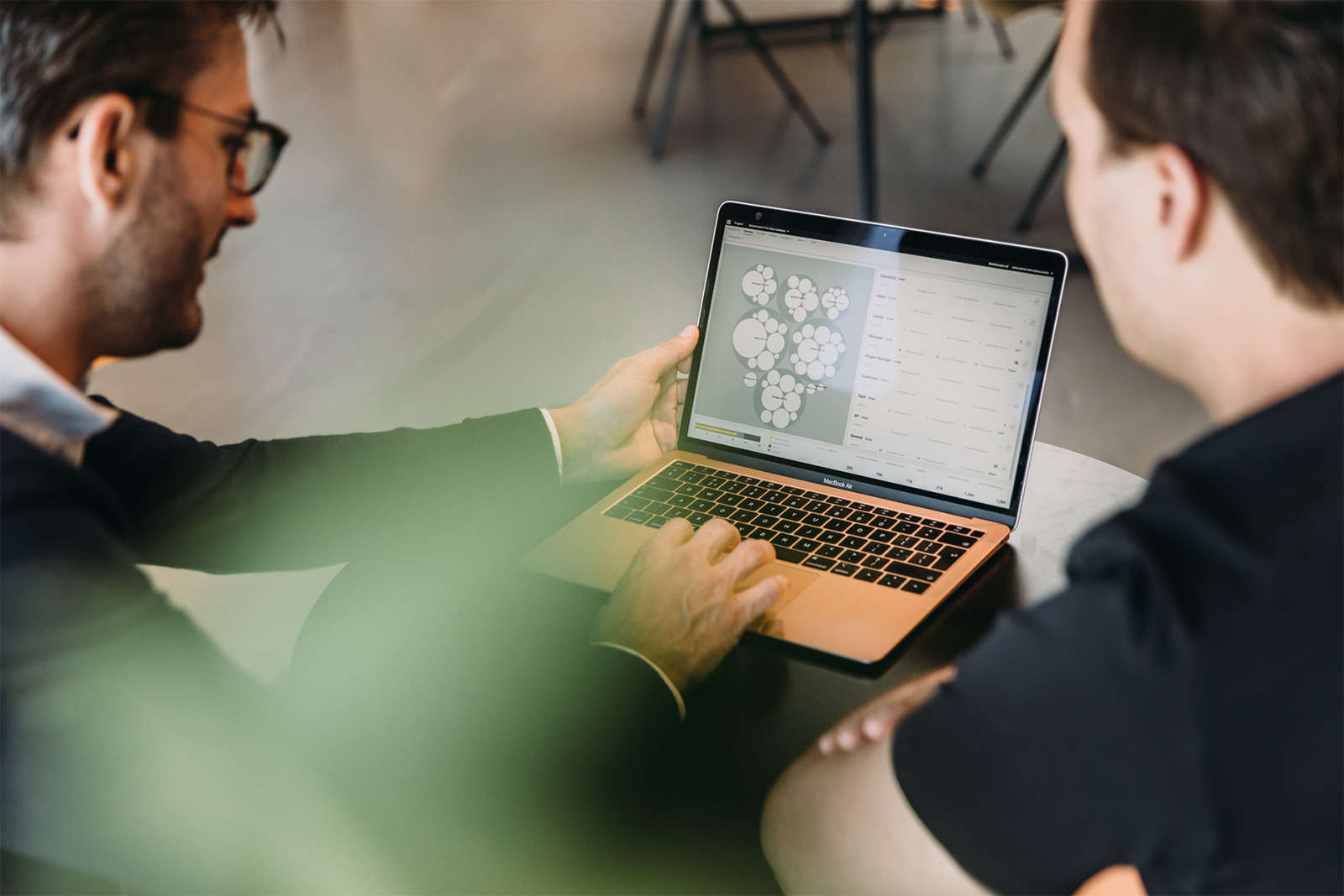
The future of work: crafting a winning hybrid working workplace strategy

Enhancing Organizational Health and Performance: A Holistic and Evidence-Based Approach
